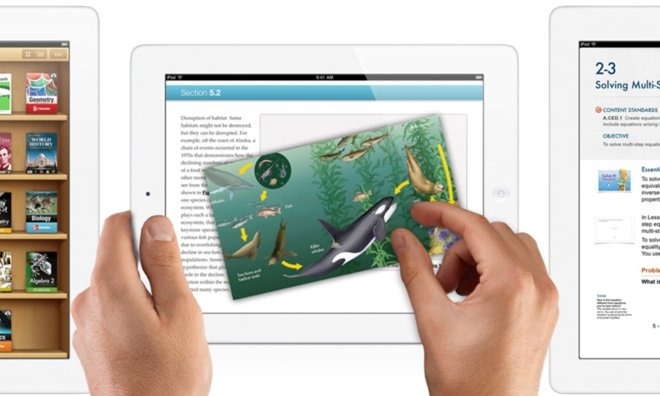At an Hour of Code educational coding session in New York on Wednesday, Apple CEO Tim Cook said his company is interested in building powerful, meaningful products for students and teachers, not inexpensive "test machines" like Google's Chromebook.

In an interview with BuzzFeed Cook said Apple has no intentions of participating in an apparent race to the bottom spurred on by cheap Chromebook hardware, but will instead continue efforts to enable students and teachers with well designed Mac and iOS devices.
"We are interested in helping students learn and teachers teach, but tests, no," Cook said. "We create products that are whole solutions for people -- that allow kids to learn how to create and engage on a different level."
Apple is seeing its once-commanding share of the education market ceded to Google as American classrooms move to an assessment-driven curriculum. The shift in priorities, along with budgetary concerns, has prompted schools across the nation to question the purchase of a Mac or iPad when a low-cost computer will suffice. For some districts, buying an iPad or other tablet device is simply not a viable option, as mandated tests require keyboards.
Still, Cook is adamant about Apple's direction.
With decades of experience in serving educational institutions, Apple's current solutions are highly effective, finely-tuned classroom tools. BuzzFeed witnessed iPad's effectiveness today at the Upper East Side Apple Store in New York, where students from P.S. 57 in Harlem participated in one of Apple's Hour of Code sessions. Directed through a Star Wars themed coding lesson on iPad, the children sat with rapt attention, ignoring the many reporters that had gathered to chronicle Cook's visit, according to the publication.
Cook told the students, "Coding is a really important language to learn -- as important as English, someday."
Apple wants to make coding a core educational subject, a strategy that unsurprisingly revolves around Mac and iPad. The company is already leveraging its corporate partnerships to develop innovative technologies for the classroom. For example, Apple and IBM in June announced a forthcoming experimental expansion to the MobileFirst for iOS initiative that uses apps and services to provide teachers with real-time student data analytics.
"The next step is getting the public schools, over time, to make it a requirement. We're hoping to get their curiosity up, and then get the system [to take the next step]," Cook said.
A pioneering force behind the computerization of American classrooms, Apple was dealt a public blow when the Los Angeles United School District axed an ambitious -- and controversial -- $1.3 billion ed-tech program last year. The IT initiative, dubbed "iPad-for-all," would have provided iPads to some 640,000 students. LAUSD later sued Apple and software partner Pearson, the latter of which settled for $4.2 million.


